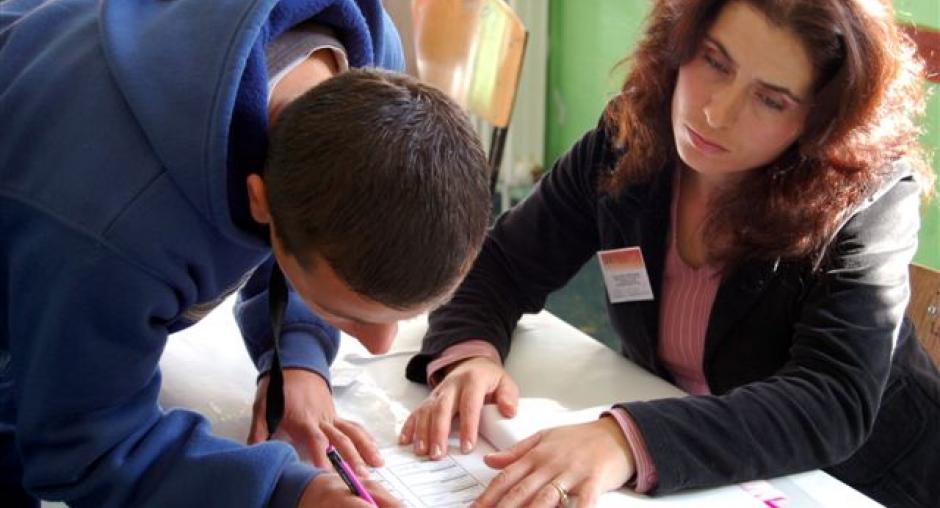OSCE Mission helps Kosovo prepare to assume full responsibility for elections
UN Security Council Resolution 1244 gave the Mission the task of not only organizing elections, but also institution-building. This meant establishing domestic institutions that would, in the long-term, be able to run elections independently.
With the Mission's help, two of these institutions - the Kosovo Central Election Commission (CEC) and its Secretariat - were in place by 2003. The CEC is chaired by the Head of the Mission, Ambassador Werner Wnendt.
"Since that time," says Per-Oeyvind Semb, Director of the Mission's Department of Good Governance and Democratic Institutions, "we have worked to strengthen these two local bodies and to gradually hand over all our electoral responsibilities."
Some of those responsibilities, however, still remain to be transferred to the domestic authorities. They include political party registration and auditing operations, voter list updating and maintenance, and the running of the counting and results centre.
"But before we hand over those responsibilities, we have to ensure that our local counterparts are fully trained and able to take on their new tasks," adds Semb.
Future electoral framework
In January this year, the OSCE Mission began hosting weekly meetings of the Transitional Working Group on Elections (TWGE), which is discussing Kosovo's future electoral legislative framework.
The Working Group, which is co-chaired by Ambassador Wnendt and Kosovo's Deputy Prime Minister, Lutfi Haziri, brings together representatives from all the main political parties, the CEC, the non-governmental sector, the UN and all other relevant international actors.
According to Haziri, the aim of the TWGE is to reach political consensus amongst all stakeholders on the main principles shaping the future electoral legislative framework. The main issues being discussed include the electoral system, gender representation, political party registration, election appeal mechanisms and voter lists.
"The most important outcome of these meetings was the agreement reached by the political parties on the electoral legislative framework," says Haziri. "The next parliamentary elections should be held under the principles of the proportional representation system with open lists and a single electoral district."
Testing the new system
The open list system is the main innovation in comparison to the last parliamentary elections, which were held in 2004. It will enable voters to directly choose not only the party, but also the candidates from a party list.
As part of preparations for the transfer of responsibilities, the Mission has also helped the CEC and its Secretariat test the implications of introducing the open list system.
"From a technical point of view, the open list system requires a much more complex voting ballot and counting procedure," says Mazllum Baraliu, Chief Executive Officer of the CEC Secretariat.
"In late 2006, when we received the first indications that political parties might be leaning towards the open list system, we designed sample ballots and organized a mock election exercise together with the OSCE in Podujeve/Podujevo municipality."
"The aim of the exercise was to ensure that the local bodies could handle this complex operation, and the results were very positive."
Preparing for the handover
As Bujar Basha, Project Liaison Officer between the Mission's Department of Good Governance and Democratic Institutions and the CEC and its Secretariat, says: "The successful transfer of responsibilities thus far has been made possible through the training we have provided to the staff of the local institutions. It will be very important to continue doing this in the last few stages."
These stages include the submission of recommendations by the TWGE to the Strategic Transition Group (STG), the body charged with preparing the handover of the remaining responsibilities from the UN administration to local institutions once Kosovo's final status is settled. The STG, together with other high-level political bodies, will then - on the basis of the TWGE's work - decide on the legislation drafting steps before the law is put up for approval by the Assembly.
"Judging by the amount of effort, Kosovo is well prepared for its fifth elections. We believe that it is now ready to conduct elections on its own and to uphold democratic standards," concludes Basha.

